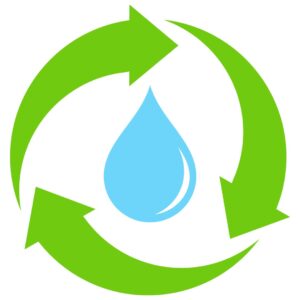Freshwater and partners spur progress on water reuse and recharge
 As the demand for clean water continues to grow, globally and here in Minnesota, Freshwater is actively working on ways to support water reuse and recharge by collaborating with technical experts, governing agencies and local communities.
As the demand for clean water continues to grow, globally and here in Minnesota, Freshwater is actively working on ways to support water reuse and recharge by collaborating with technical experts, governing agencies and local communities.
The WateReuse Association reports that the volume of recycled water produced in the United States is projected to increase by 37 percent over the next three years, furthering a more sustainable approach to water known as the circular water economy. Freshwater Executive Director Michelle Stockness attended the association’s annual WateReuse Symposium in March, and concluded that Minnesota is behind in this area, with an opportunity for much progress to be made – particularly in building cross-sector partnerships to share best practices and move these types of projects forward.
Michelle also serves on the Minnesota Department of Health’s Stormwater Capture and Use Committee, which includes state agencies, cities, stormwater professionals and watershed districts. “We think that there are big opportunities for water reuse and recharge to grow in Minnesota to ensure sustainable water for future generations,” she said.
Upcoming workshop on water reuse operation and maintenance
On June 6, Freshwater and Barr Engineering will host a workshop on water reuse in Minnesota, with invitations going out to cities, watershed districts and state agencies (register here if you would like to attend).
The topic will be operation and maintenance of reuse systems, including case studies and lessons learned from the City of Hugo, City of Woodbury, Capitol Region Watershed District, and Mississippi Watershed Management Organization.
Managed aquifer recharge study underway with University of Minnesota
Freshwater Research and Policy Director Carrie Jennings is part of research team led by University of Minnesota Hydrogeology Professor Peter Kang to analyze the potential for managed aquifer recharge projects in Minnesota. This includes developing a new GIS mapping tool and evaluating the feasibility of injecting water into the ground or constructing infiltration basins to essentially “bank” groundwater for future use.
Freshwater’s primary role will be to communicate with state agency personnel, tribes, legislators and other stakeholders – and to make policy recommendations that would allow managed aquifer recharge to be more easily implemented in the future.
Circular water economy white paper coming soon
In the coming months, Freshwater plans to author a new white paper, State of Minnesota’s Circular Water Economy, with help from a student in the University of Minnesota’s Circular Economy program, and with input from national subject matter experts. Similar to past Freshwater/U of M white papers like Banking Groundwater, we plan to outline opportunities, barriers and recommendations to move our state forward on water sustainability initiatives.